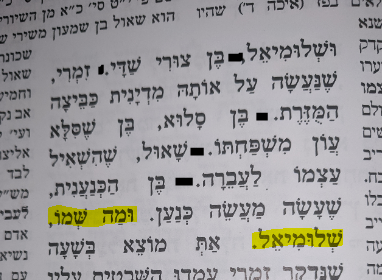In the Yeshiva world some people like to attribute the Vilna Gaon’s mathematical expertise (from his publication of a Trigonometry book Ayil Meshulash) and giving him credit to Cramer’s Theorem (his grandfather’s last name was Kremer, hence the derivative). I would like to debunk the bunk.
Firstly, while the Vilna Gaon wrote emendations and corrections on the Talmud based on Mathemics and likely was well-versed, the Ayil Meshulash book was a basic “intro” book to Trigonometry. Most high-school textbooks today cover much more (thanks, Reb Micha Berger) – see here.
From My Western Wall, here.

